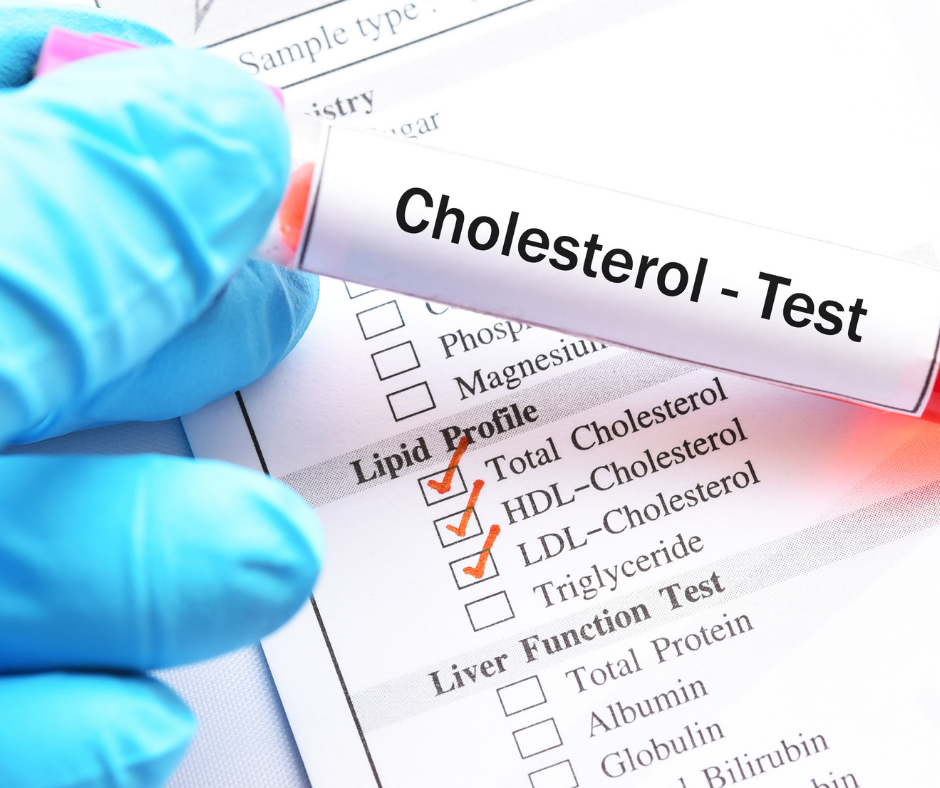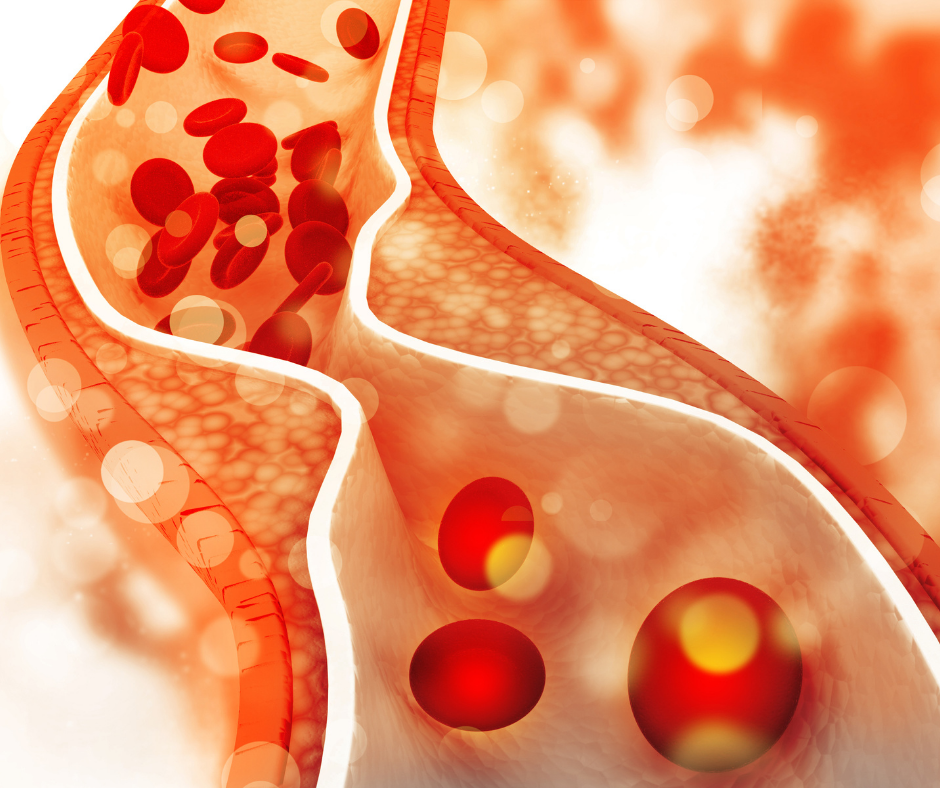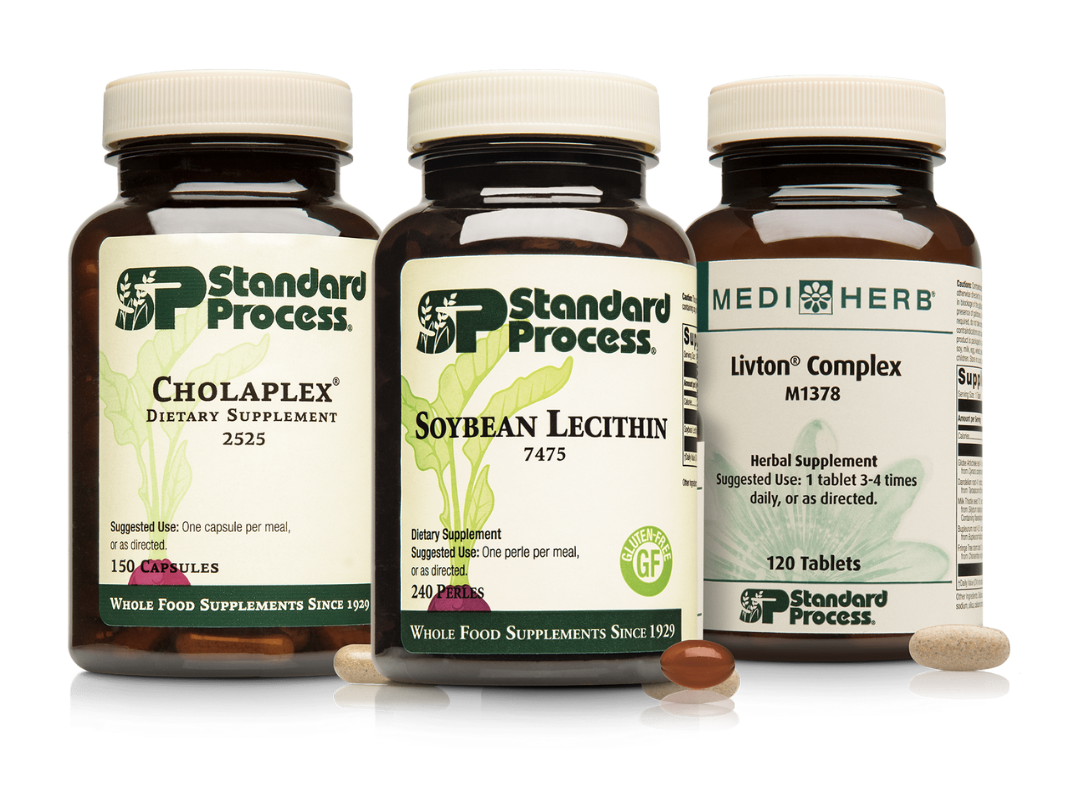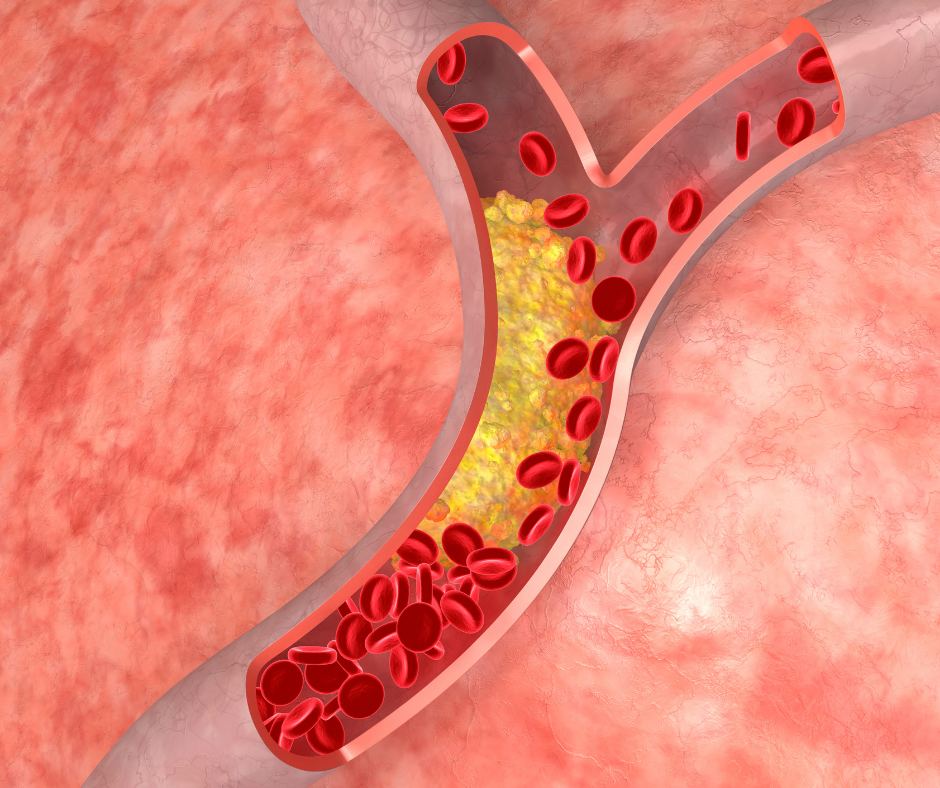By Claire Bacon, ACN, CNC
Cholesterol is a type of fat created by the body that has long been studied for its connection to heart health. Whereas a small percentage of cholesterol comes from the diet, the majority of cholesterol is produced by the liver as a response to systemic inflammation. A certain amount of cholesterol is necessary to insulate the nerves, create cell membranes, and produce hormones that keep you energetic and happy. Checking to make sure you have balanced cholesterol levels is an easy way to keep an eye on your cardiovascular health – and your overall health.
If your levels are off, many factors could be contributing to the cause. It’s important to understand the reason(s) you might have excess inflammation, before resorting to a medication. Your body is intelligent! It’s not making a mistake!
Important Blood Markers
Triglycerides are possibly the most important cholesterol marker to watch. People with high triglycerides usually have high total cholesterol. Many people with metabolic syndrome or diabetes also have higher triglycerides levels. Certainly, if you’ve been eating more carbohydrates than what your body can handle, this will show up as excess triglycerides in the blood.
You may not realize it, but insulin resistance could be taking hold – even if you’re not overweight and even if your Hb A1c is perfect! That’s right, a Fasting Insulin test is a standalone marker that could be out of line, even if the others are fine! You could also run a detailed NMR analysis to check your cholesterol. It checks your lipid balance, your small particles, and your insulin resistance risk – all in one!
Other possibilities that might cause imbalanced cholesterol levels are:
- hypothyroidism,
- lack of essential fatty acids,
- hormone replacement therapy,
- chronic infection,
- and/or exposure to chemicals in our home environment.
Of course, there could also be a genetic component to your cholesterol being high. If your homocysteine is high, you may have genetic mutations (called SNPs) that impair your methylation. If your parents also have trouble with balanced cholesterol, you might also like to check your Apolipoprotein A and B values. C-Reactive Protein is a good general marker of inflammation to watch. If cholesterol tends to be low, we often look to your Omega 3 and 6 fatty acid status, along with vitamin D, and the potential for liver congestion.
Many factors come into play when trying to get your cholesterol levels back to a healthy range. Talk to us if you need help interpreting your recent lab values!

Cholesterol Transportation Throughout the Body
Lipoproteins are carrier proteins responsible for transporting cholesterol throughout the body. For example, low-density lipoprotein (LDL) carries a low density of proteins and a high density of cholesterol. High LDL levels are unhealthy because LDL indicates there is excess inflammation throughout the body. LDL carries cholesterol out to the inflamed areas of the body that need “patching” or calming down. High-density lipoprotein (HDL) has the opposite composition; it is considered “healthy cholesterol.” This is because it carries cholesterol back to the liver for recycling. Usually when discussing “high cholesterol” in a clinical setting, the person has high levels of LDL due to inflammation and low levels of HDL due to inactivity.
The main idea is that no matter how much cholesterol you have, it should act like a kid sliding down a Slip n’ Slide. Even if your total cholesterol is 300, it won’t be a problem if your arterial walls are healthy! The key is to avoid sugar and other inflammatory substances like alcohol, trans fats, and food preservatives. That means little to no doughnuts, cocktails, margarine, and artificial colorings and preservatives.
Basically, the more ingredients in a processed food, the more you should put it down! In addition, getting plenty of Buckwheat in your diet (a source of Rutin) plus Omega 3 fish oil helps to keep inflammation down.

Cholesterol and Plaque Buildup
High levels of LDL cholesterol impact the risk for heart disease because LDL can build up and create obstructive plaques in blood vessel walls, inhibiting blood flow and leading to conditions like atherosclerosis. On the other hand, high levels of HDL cholesterol can address the obstruction, removing cholesterol from plaques and transporting it away for excretion.
Consumption of foods that contain trans fats or high levels of saturated fats increases LDL cholesterol and lowers HDL cholesterol. You can find trans fats or partially hydrogenated oils in most processed foods; you should always avoid margarine and plant-based “butter spreads.” Try to consume saturated animal fats in moderation.
The Centers for Disease Control and Prevention (CDC) estimates that 12 percent of adults 20 years of age and older have high total cholesterol (higher than 240 mg/dL) and low HDL cholesterol (less than 40 mg/dL). Dietary choices make a significant impact on lowering cholesterol to a healthy level. For example, foods high in soluble fiber attach to cholesterol in the gut and sweep out the excess. Sources of soluble fiber include oats, barley, and other whole grains, beans, nuts, and fruit. Clearly, choosing a healthy diet is the #1 way to maintain balanced cholesterol levels.

Supplements for Balanced Cholesterol:
If you need to balance your cholesterol levels, be sure to have this trio of our favorites:

- Cholaplex is like a multi-vitamin for the liver. It contains five different individual Standard Process products: Orchex, Cataplex F and G, Cyruta, and Cholacol. Nutrients such as B vitamins, essential fatty acids, bile salts, and buckwheat leaf help to relax the nervous system, reduce inflammation in the arteries, and support bile production.
- Soybean Lecithin consists of the fat portion of the soybean plant; it doesn’t contain any soy protein. Soybean Lecithin is helpful to remove excess cholesterol from the bloodstream.
- Livton Complex is a true tonic for whatever ails the liver. It provides digestive support and restorative action on dysfunctional liver tissue. The herbs included in this complex are: Bupleurum, Globe Artichoke, Milk Thistle, Dandelion and Fringe Tree.
Yes, we can mail to you! Just ask!
Final Thoughts
We hope you have learned some new ideas for getting your cholesterol levels balanced. Let us know if you’d like to look deeper to the cause of your inflammation!



